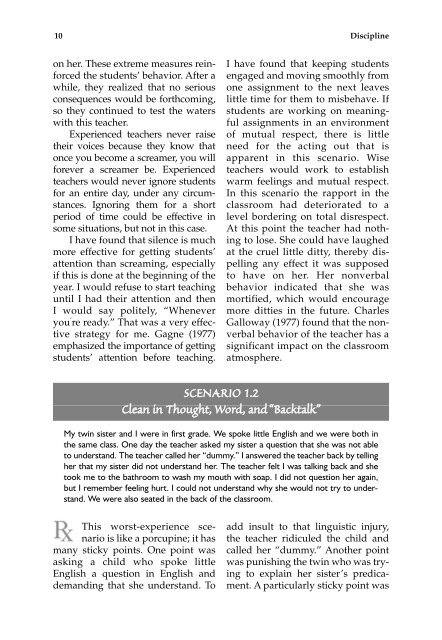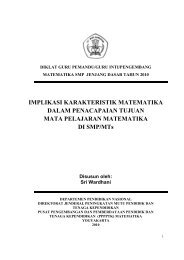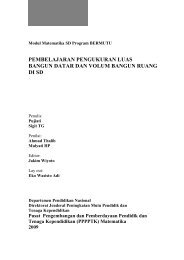25 Biggest Mistakes Teachers Make and How to Avoid Them
25 Biggest Mistakes Teachers Make and How to Avoid Them
25 Biggest Mistakes Teachers Make and How to Avoid Them
Create successful ePaper yourself
Turn your PDF publications into a flip-book with our unique Google optimized e-Paper software.
10 Discipline<br />
on her. These extreme measures reinforced<br />
the students’ behavior. After a<br />
while, they realized that no serious<br />
consequences would be forth coming,<br />
so they continued <strong>to</strong> test the waters<br />
with this teacher.<br />
Experienced teachers never raise<br />
their voices because they know that<br />
once you become a screamer, you will<br />
forever a screamer be. Experienced<br />
teachers would never ignore students<br />
for an entire day, under any circumstances.<br />
Ignoring them for a short<br />
period of time could be effective in<br />
some situations, but not in this case.<br />
I have found that silence is much<br />
more effective for getting students’<br />
attention than screaming, especially<br />
if this is done at the beginning of the<br />
year. I would refuse <strong>to</strong> start teaching<br />
until I had their attention <strong>and</strong> then<br />
I would say politely, “Whenever<br />
you ’ re ready.” That was a very effective<br />
strategy for me. Gagne (1977)<br />
emphasized the importance of get ting<br />
students’ attention before teaching.<br />
I have found that keeping students<br />
engaged <strong>and</strong> moving smoothly from<br />
one assignment <strong>to</strong> the next leaves<br />
little time for them <strong>to</strong> misbehave. If<br />
students are working on meaningful<br />
assignments in an environment<br />
of mutual respect, there is little<br />
need for the acting out that is<br />
apparent in this scenario. Wise<br />
teachers would work <strong>to</strong> establish<br />
warm feelings <strong>and</strong> mutual respect.<br />
In this scenario the rapport in the<br />
classroom had deteriorated <strong>to</strong> a<br />
level bordering on <strong>to</strong>tal disrespect.<br />
At this point the teacher had nothing<br />
<strong>to</strong> lose. She could have laughed<br />
at the cruel little ditty, thereby dispelling<br />
any effect it was supposed<br />
<strong>to</strong> have on her. Her nonverbal<br />
behavior indicated that she was<br />
mortified, which would encourage<br />
more ditties in the future. Charles<br />
Galloway (1977) found that the nonverbal<br />
behavior of the teacher has a<br />
significant impact on the classroom<br />
atmosphere.<br />
SCENARIO 1.2<br />
Clean in Thought, Word, <strong>and</strong> “Backtalk”<br />
My twin sister <strong>and</strong> I were in first grade. We spoke little English <strong>and</strong> we were both in<br />
the same class. One day the teacher asked my sister a question that she was not able<br />
<strong>to</strong> underst<strong>and</strong>. The teacher called her “dummy.” I answered the teacher back by telling<br />
her that my sister did not underst<strong>and</strong> her. The teacher felt I was talking back <strong>and</strong> she<br />
<strong>to</strong>ok me <strong>to</strong> the bathroom <strong>to</strong> wash my mouth with soap. I did not question her again,<br />
but I remember feeling hurt. I could not underst<strong>and</strong> why she would not try <strong>to</strong> underst<strong>and</strong>.<br />
We were also seated in the back of the classroom.<br />
This worst-experience scenario<br />
is like a porcupine; it has<br />
many sticky points. One point was<br />
asking a child who spoke little<br />
English a question in English <strong>and</strong><br />
dem<strong>and</strong>ing that she underst<strong>and</strong>. To<br />
add insult <strong>to</strong> that linguistic injury,<br />
the teacher ridiculed the child <strong>and</strong><br />
called her “dummy.” Another point<br />
was punishing the twin who was trying<br />
<strong>to</strong> explain her sister’s predicament.<br />
A particularly sticky point was





